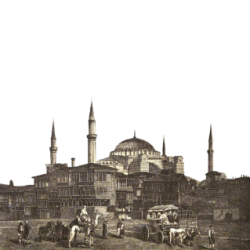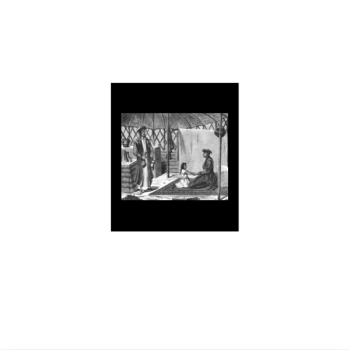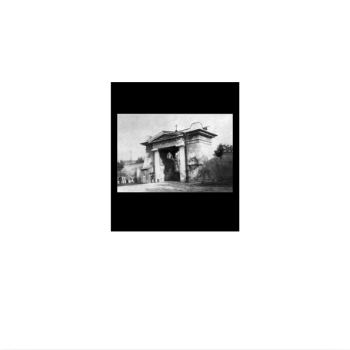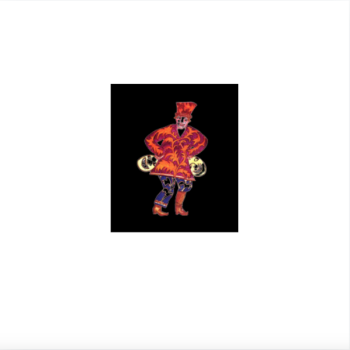THE HOUSE DOLGORUKUY
The Fadeevs were in St. Petersburg by the Spring of 1814, arriving at the capital with many letters of recommendation to nobles and powerful people. Many of these people were connected to Elena Pavlovna’s relations. Field Marshal Nikolai Ivanovich Saltykov, for example, the Chairman of the State Council, was a close relative of Prince Pavel Vasilyevich. Saltykov, recently promoted to Prince of the Russian Empire by Alexander Pavlovich, had a long history with the Tsar. He was a tutor of Alexander and Constantine (Romanov,) and in 1801 he was made Lieutenant Grand Master of the Knights of Malta on behalf of the Tsar (who was elected Grand Master but could not perform his official duties.) Andrei Fadeev was only twenty-four and had no more than the rank of Titular Councilor, had little experience, and even less money. Therefore, despite the favorable receptions of Prince Saltykov, his three sons, and some other nobles, the Fadeevs lived in St. Petersburg for four months without success. (There was also no position available in Kiev.) Alexander Nikolaevich (the son of Nikolai Ivanovich,) a Senator and member of the State Council, told Andrei Mikhailovich that owing to rampant bribery, any scoundrel with the recommendation of a valet had a better chance at being appointed to office than a decent person had with the recommendation of his father.
Andrei Mikhailovich had some luck when Vyazminitov, the Minister of Police, wanted to fulfill the recommendation of Nikolai Ivanovich. He knew Elena Pavlovna’s grandparents well. (Vyazminitov was the adjutant of Field Marshal Prince Zakhar Grigorovich Chernyshev when the late Adolf Frantsevich served with him.) Vyazminitov offered Andrei Mikhailovich a position as an assessor in the Nizhny Novgorod Provincial Government. Service of that kind was completely new to him, an unenviable place and not at all according to his character. Though the salary was small (only 600 rubles in banknotes,) and he had not the slightest idea about civil service, there was no other work to be had. Besides, the position would place them closer to Penza, nearer to the paternal side of Elena Pavlovna’s family, where her father and grandmother, Anastasia Ivanovna Dolgorukaya lived.
The Fadeevs returned to Rzhyshchiv in June. It was sad for both Elena Pavlovna and Elena Ivanovna, separated by such a distance for the first time in their lives. The Fadeevs agreed that it would only be a temporary measure, and that Andrei Mikhailovich would always keep in the back of his mind the goal of achieving a position near Kiev. They set off for Mogilev (Belarus,) in July with Elena Ivanovna where her brother, Major General Uilyam Ivanovich Briseman-von-Nettig, was District Commander of the Internal Guard. Along the way, they met up with old acquaintances of Elena Ivanovna. A few days were spent Chachersk with Elena Pavlovna’s godmother, the eccentric Countess Anna Rodionovna Chernysheva. She lived in seclusion after the death of her husband and, excepting her closest relations, did not receive any visitors.
After staying two weeks with Uilyam Ivanovich in Mogilev, they parted with Elena Ivanovna, and the Fadeevs continued their journey. Elena Pavlovna had never been to Russia before, so everything was new and interesting to her. The path ran through Moscow, and the devastation that resulted from Napoleon’s invasion was still evident two years later. Practically all the cities and villages (Gzhatsk, Vyazma, Dorogobuzh, etc.) were in the same condition as they were immediately after the invasion, a heap of ruins. The poverty of the villages was widespread. On the field where the Battle of Borodino took place, Elena Pavlovna collected several bullets which she added to her growing collection of curiosities. When they reached Moscow, they spent several days with Pavel Mikhailovich (Andrei Mikhailovich’s brother.) He told the Fadeevs a lot about the events of that sad time. During the siege, Pavel Mikhailovich and his family found refuge in an orphanage which, as was widely known, was protected by Napoleon from the invading troops. One day, however, while sneaking out for some fresh air, a French soldier saw Pavel’s wedding ring and tried to steal it. It was on very tight, so the soldier nearly removed his finger with a knife. Pavel managed to escape and quickly returned to the orphanage. The Fadeevs were taken around the city which, excepting the cathedrals, a few monasteries, and some restored buildings, was pile upon pile of ruinous debris. Pavel Mikhailovich took them to the village of Kolomenskoye where appanage peasants lived. He showed them huge vats where these peasants fermented cabbage to sell in Moscow. In 1812, during the pogrom (“destruction,”) they lost this income due to the destruction of that crop by the French. In revenge, while the French were evacuating, but before the Imperial Russian Army had arrived, the peasants ransacked the infirmary of Kolomenskoye where the sick and wounded French were being treated. They next removed the enemy soldiers and, in lieu of cabbage, threw them into the vats, crushing them to death. The blood and gore flowed into the walls and bottom of the vats so much, that the residue of gore was still visible.
From Moscow, they went to Vladimir and Arzamas. Arriving in Nizhny, they rented a small but decent apartment, and Andrei Mikhailovich met the most honorable of the local nobility. The most remarkable of them was the influential landowner named Prince Georgy Aleksandrovich Gruzinsky. He was a Russian nobleman of royal Georgian extraction; an eccentric, he was kind and intelligent, but also a tyrant. During the Patriotic War of 1812, he raised a militia to fight the French. Then there was Governor Bykhovts (a bribe taker,) and Vice Governor Kryukovsky, a noble and honest man. Everyone else, the nobility, the clergy, and the entire bureaucracy, with few exceptions, were immersed in concerns of material interests and devoted to gluttony, drunkenness, and bribery.
Andrei Mikhailovich soon grew tired of serving in the Provincial Government of Nizhny Novgorod, the insolvency of this government, like neighboring local governments, “were almost universally just cesspools.” The Governor directed affairs as he wished; minor matters were managed by one advisor who began his service under one administration, and everyone else signed what they were given to sign. Twice Andrei Mikhailovich was assigned to business trips: one was to find gold in the Lower Family District, according to information from a criminal who was being held in prison. Gold, of course, was not found; it was just one of the tricks that abounded at the time. Another business trip was given at his request to the Penza Province, to solicit from Penza distillers who wished to supply a three-month proportion of wine to the Nizhny Novgorod Province the following year. This trip was just a pretext, as contracts had already been decided by Governor Bykhovts. Andrei Mikhailovich was very happy about this circumstance because it presented him with the opportunity to meet and introduce himself to Elena Pavlovna’s relatives. They set off in September, stopping in Arzamas for several days where they visited the famous Arzamas Convent and stocked up on the handicrafts made by the monks. On the recommendation of Prince Pavel Vasilyevich, they paid a visit to some of his old acquaintances, two landowners named Bezsonov and Polchaninov. In the home of the former, they found a thoroughly comfortable, well-organized household. A few miles away, in the home of the latter, they found a home in disarray. Polchaninov had terrible music, a whole horde of ragged servants, and twenty dishes at dinner—each worse than the other.
Eventually, they reached the goal of their journey, the village of Znamenskoye in the Mokshansky District, about thirty miles from Penza. It was here that Elena Pavlovna’s relatives lived in the remnants of their once large and rich estates.[1] Princess Anastasia Ivanovna Dolgorukaya (née Lodyzhenskaya,) the eighty-year-old grandmother of Elena Pavlovna, was the daughter of Ivan Petrovich Lodyzhensky, and matrilineally a descendant of the illustrious House Romodanovsky.[2] Already weak and half-dead, she was once a great beauty who shined at the courts of Empress Elizabeth and Catherine the Great. When she married Prince Vasily Sergeevich Dolgoruky, she received more than eight thousand Souls (peasants) as a dowry and once lived with him very widely in her rich Moscow home. Unfortunately, she was not good with money and often did not take into consideration her overspending. A characteristic incident from her life illustrates this point. One of her sons nearly died from Scarlet Fever but he recovered. To the doctor who treated him, they presented a beautiful estate near Moscow with four hundred Souls. It is no wonder that, because of imprudent handling of property, it finally collapsed under the “sovietnik” (councils,) and Princess Anastasia Ivanovna, burdened with debt in her old age, had to limit herself to very moderate means provided by the one surviving estate of several hundred souls. She was, however, a very smart, amiable, secular old lady, with great education and erudition, especially in French literature.
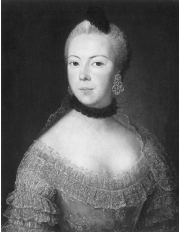
Princess Anastasia Ivanovna Dolgorukaya.
Her late husband, Prince Vasily Sergeevich, was the son of Prince Sergei Grigorievich Dolgoruky who, along with all the other Dolgorukys, was persecuted under Empress Anna Ioannovna, and her German accomplice, Ernst Johann von Biron. Sergei Grigorievich had spent his youth at embassies in Paris, Vienna, and London and with his father (Grigori Fedorovich Dolgoruky) in Poland. In 1720 he returned to Russia and was Ambassador to Warsaw between 1721 and 1725 and ambassador plenipotentiary to Poland between 1728 and 1729. After the death of Emperor Peter II in 1730, Sergei Grigorievich was an accomplice in the drafting of the emperor’s forged spiritual will. By a manifesto (April 14, 1730) he was stripped of all ranks and orders and exiled with his wife Marfa Petrovna (daughter of Vice Chancellor Baron Piotr Pavlovich Shafirov) and children to live in the distant village of Ranenburg (Ryazan Province) under strict supervision, and all of his estates (except for one in the village of Zamotrino) were confiscated in June 1730. He managed to obtain a full pardon and the title of chamberlain was returned in 1738 and was even appointed ambassador to London. The Dolgoruky case was reopened in 1739, however, and Sergei Grigorievich was arrested and sent to Shlisselburg. He and his nephew, Prince Ivan Alekseevich Dolgoruky (husband of the famous Natalya Borisovna) were interrogated and subsequently executed by beheading in Novgorod in November 1739. Sergei Grigorievich was buried in the Epiphany Monastery, and his wealth and property were confiscated.
Sergei Grigorievich and Marfa Petrovna had two sons. The eldest son, Piotr Sergeevich, was sent as a soldier to Dzov. The younger son, Vasily Sergeevich was given over to a blacksmith to be a worker. He labored eight years in this trade, and as a result, learned blacksmithing very well, but never learned the art of letters. When he was twenty years old, the daughter of Peter the Great, Empress Elizaveta Petrovna, reigned. Vasily Sergeevich was called to her court, thereby ending his persecution. The Empress, however, could not return the wealth that was confiscated from the Dolgoruky estates, as it had already been distributed to others. Before his death in 1803, Vasily Sergeevich would enter military service (retiring as a foreman,) and marry Anastasia Ivanovna.[3]
Prince Pavel Vasilyevich lived modestly next door to his mother in his small estate, “Marfovka,” with a hundred peasant Souls. Having been awarded the rank of officer while still in the cradle, he served in the military his entire life, and saw combat in nearly every campaign during his lifetime. No doubt, he would have had a brilliant career had he not retired. (He did not want to undertake the implementation of the new strictures introduced at the beginning of the reign of Tsar Pavel Petrovich.) He (repeatedly) received invitations to resume his military career, but he always declined. Possessing a highly enlightened mind with specialized knowledge in esoteric subjects, his free time was spent doing serious work in his huge library. He was respected by everyone. Village life did not sever his connection with the outside world; his close family and friendly ties with the noblest houses of both capitals were maintained through constant correspondence. Spending a significant part of his moderate income on books and scientific apparatus, he had to limit himself on all other luxuries. He dressed very simply, poorly some might say, which occasioned not a few comically awkward exchanges. There was the story about a Stationmaster from a nearby Postal Station who asked Pavel Vasilyevich to baptize his son. The prince agreed, and on the appointed day went to the caretaker. As the baptism required two witnesses, a young landowner, the “dandy” named Bakhmeten, arrived soon after. The caretaker left the room, and Bakhmeten, seeing only an old man waiting in a simple grey frock coat, mistook the prince for a retired non-commissioned officer.
“Brother,” asked Bakhmeten, “did you serve in the military?”
“Servant,” replied Pavel Vasilyevich.
“How long did you serve?”
“Long enough.”
“Have you fought a lot?”
“Fought enough.”
“Well…are you here now on leave or are you retired?”
“Retired.”
“Do you have a family? Wife? Children?”
“I am a widower, and my family is small, only two daughters.”
“What rank did you retire? Sergeant Major?”
“Major General.”
“What?”
“Major General.”
“How” asked Bakhmeten in confusion. “May I ask with whom I have the pleasure of addressing?”
“Prince Pavel Vasilyevich Dolgoruky.”
Bakhmeten, at a complete loss for words, muttered some incoherent apologies. He then attacked the caretaker. “How dare you not warn me what kind of guest we have?” Pavel Vasilyevich had to intercede on the caretaker’s behalf, as Bakhmeten could not be calmed down.
The other members of the Dolgoruky family here were Pavel Vasilyevich’s siblings, Sergei Vasilyevich and Ekaterina Vasilyevna Kozhina. Sergei Vasilyevich, one of Catherine the Great’s Brigadiers, was a kind man, but weak and sickly. He managed all the economic affairs of Znamenskoye. Ekaterina Vasilyevna, a pupil of the Smolny Monastery, and a childless widow. She was an intelligent woman, but somewhat whimsical and unyielding. Her condition was incomparably better than that of her brothers and mother, but her prudence (bordering on stinginess) was a distinctive feature of her character. This was the source of many curious anecdotes. Once a year, on her name day, she gave a Ball in Penza. The sweets on the tables, however, were comprised of all the delicacies that she had collected throughout the year from other Balls she attended. At one of these galas she had a large tray of rachki (hard caramel candy) that was immediately recognized by its former owner, Prince Vladimir Sergeevich Golitsyn. (It was sent to him along with other sweets from Moscow for his Ball several months before.)
Ekaterina Vasilyevna had a house in Moskow, on Prechistenka Street, and needed to repaint the roof.[4] She wanted to repaint it with a special mineral paint, made from stones that were quite valuable. At that time, there lived in Moscow a mountain general, an old bachelor who had a large collection from Siberia of just such stones. Ekaterina Vasilyevna found out about this and became quite acquainted with the old general, and began to ingratiate herself. She courted him so much that the old man, preceded by this courtesy, hinted at a marriage proposal. Without giving him a consoling answer, Ekaterina Vasilyevna began to constantly talk to him about her supposed passion for minerals, and her desire to build a rock collection. She even asked if she could purchase some from his collection. The general valued his collection, but to force a quicker consent to his proposal, he considered her offer. Thinking that he would get them back after their marriage, he willingly presented her his entire collection of minerals. Ekaterina Vasilyevna received them very favorably, expressed her great pleasure, and that same day refused the general’s wedding proposal. She immediately ordered the stones to be turned into paint. She then painted her house with them and left for her big house in Penza. There were even more stories of her frugalness here. The city government of Penza forced her to build a sidewalk near her house. Ekaterina Vasilyevna held out as long as she could but was eventually forced to build a wooden sidewalk by the police. To preserve it, save money, and protect it from damage, she assigned guards to stand watch over the sidewalk (day and night) to drive away passers-by who might walk on it. She watched over it vigilantly from the windows of her house and often went out into the street to personally command her guard. She was no longer in her youth when she married the landowner Kozhin, a reputedly wealthy man. He hosted luxurious Balls and feasts; kept an orchestra of music; and had a home theatre and a corps of peasant Souls. Ekaterina Vasilyevna, hoping to attract this rich bachelor, made an exaggerated impression of herself. This misconception backfired. Kozhin was far from rich, he was in financial ruin. Mutual disappointment followed. Ekaterina Vasilyevna got rid of all her husband’s frivolous expenses and toys, putting a permanent end to his “entertainment shenanigans.” Kozhin, having briefly enjoyed the happiness of married life, hastened to leave Ekaterina Vasilyevna a widow (about which she did not grieve at all.) All things considered, Ekaterina Vasilyevna, in her own way, was an affectionate, friendly, intelligent, worldly, and pleasant old woman—she was just incredibly inflexible with money.
Last was the sister of Elena Pavlovna, Anastasia Pavlovna Sushkova, an extremely beautiful woman, known at one time as “La Belle Dolgorukaya.” Her husband, Alexander Vasilyevich Sushkov, was a big reveler, and at the time absent, serving in the police.
Andrei Mikhailovich and Elena Pavlovna saw and heard a lot of curious, amusing, and sometimes even strange things during their four-month stay in Znamenskoye. They were very interested in the stories of relatives, of the old times (good and bad,) about the events and vicissitudes of their lives. They enjoyed the family legends and the stories about historical people closely known to them. They learned a lot of new and interesting things, and the time passed quite pleasantly.
There was a sense of “tribal” pride and simplicity, remnants of former greatness and wealth, and a lack of ordinary items for the convenience of life. The huge wooden house had about forty rooms, and each was haunted by the ghost of luxury. There were family portraits everywhere, tree rings of heraldry that grew more bonneted and hirsute the further they went back. The furniture, once very valuable with carvings and inlays, was now damaged and dilapidated. There was a huge garden on the premises, but was in decay, and the trails and pathways were long neglected. There was almost no concern for order and economy regarding the management of the house and estate. Every member of the family was smart, educated, and completely secular, but they all had their unique habits, peculiarities, and quirks. They loved to eat well, and their food was wonderful; their cooks, of whom there were about a dozen, could truly be called masters of the culinary arts. Special attention was paid to their training, indeed, it was the only part of house-keeping department that could truly be called impeccable.[5]
-
- NOVOROSSIYA
- The Arbiter Of Europe’s Destiny.
- The House Dolgorukuy
- Madame Krüdener
- Ekaterinoslav
- The Arabat Arrow
- The Mystery Of General Inzov
- The Doukhobors
- Pushkin
- Chuguev Military Settlement
- “The Blessed”
- The Decembrists
- Penza
- Independence
- Last Words Of Samuel Khristianovich Kontenius
- “Amid Coffins And Desolation”
- Rusalka
- Dead Souls
- Secret Passages
- Astrakhan
- Nevsky Prospekt
- Kalmyk Ulus
- Love And Ambition
- Duellistes
- Pyatigorsk
- A Heroine Of Our Time
- Winter Palace
- Zeneida R-Va
- Steppes
- Letter To Natalya
- Fire And Ice
SOURCES:
[1] “The Dolgorukov family of princes descends in a direct line from Prince St. Michael of Chernigov, and therefore from Rurik. St. Michael of Chernigov, who was tortured to death in 1246 by the Tatars in the Horde and whose relics now rest in the Archangel Cathedral in Moscow, had five sons, including Prince Semyon, the ancestor of the princes Odoevsky and Vorotynsky, Prince Mstislav, from whom the princes Masalsky, Zvenigorodsky, Yeletsky and Gorchakov trace their lineage, and Prince Yuri, who reigned in Tarusa. Prince Yuri of Tarusa had two sons: Prince Vsevolod, the ancestor of the princes Baryatinsky and Mezetsky, and Prince Konstantin. Prince Konstantin Yuryevich had only one son, Prince. Ivan, and he had a son, Konstantin, who received the city of Obolensk on the Protva River, within the boundaries of the present-day Kaluga Governorate, as an inheritance. Prince Konstantin Ivanovich Obolensky had three sons, of whom the youngest, Prince Andrei Konstantinovich, was the father of the founder of the Dolgorukov princes, Prince Ivan Andreevich, nicknamed ‘Dolgoruky.’ This nickname was written ‘Dolgoruky’ and was of a purely personal nature, as a result of which it could not be extended to descendants otherwise than in the genitive case. In the oldest charters, the descendants of Prince Ivan are everywhere called the Dolgorukovs (descendants.) This spelling is the only correct one, although subsequently many representatives of this family signed their names ‘Dolgoruky,’ sometimes even ‘Dolgoruky.’ The second son of Prince Andrei, Prince Vasily, nicknamed Shcherbaty, was the ancestor of the princes Shcherbatov, whose family name has exactly the same basis as the Dolgorukovs, and can serve as an example, since it was not distorted. The third brother, Prince Alexander Andreevich, was the ancestor of the princes Trostensky, who received this nickname according to their inheritance. Prince Ivan Andreevich Dolgorukov had a son, Prince Vladimir, and by him seven grandsons, who were called the Dolgorukovs. Of these, three left no male issue; the remaining four: 1. Prince Semyon, 2. Prince Fyodor, 3. Prince Timofey, and 4. Prince Mikhail Ptitsa, were the founders of four branches of the Dolgorukov princely family.” [Polovtsov, A. A. Russian Biographical Dictionary. Vol. VI: Dabelov-Dyadkovsky. Imperial Russian Historical Society. St. Petersburg, Russia. (1905): 494-495.]
[2] Andrei Mikhailovich writes that Anna Ivanovna was the granddaughter of the “князь-кесарь” (“Prince Caesar”) Romodanovsky. This would be a reference to Fyodor Romodanovsky, the first Chief of Secret Police under Peter the Great (who affectionately referred to him as “His Caesarean Majesty.” Andrei Mikhailovich seems to be mistaken, as Fyodor Romodanovsky was a descendant of Yuri Ivanovich Romodanovsky. Anna Ivanovna was a descendant of Yuri Ivanovich’s uncle, Prince Grigory Grigoryevich Romodanovsky (????-1682.) The family tree would look like this: Prince Grigory Grigoryevich and his wife (Anastasiya) had a son, Mikhail Grigorievich (1653-1713.) Mikhail Grigorievich and his wife (Evdokia Vasilievna Golokhvastiva) had a son named Andrei Mikhailovich Romodanovsky (1682-1712) Andrei Mikhailovich and Anastasiya Borisovna Galitzine (1675-1743) had a daughter named Ekaterina Andreevna Romodanovskaya. Ekaterina Andreevna married Ivan Petrovich Lodyzhensky, and they had Anastasia Ivanovna.
[3] Fadeyev, Andrei Mikhailovich. Vospominaniia: 1790-1867. Vysochaishe Utverzhd. Yuzhno-Russkago. Odessa, Ukraine. [Russian Empire.] (1897): Part I: 92-97; Zhelihovskaya, Vera Petrovna. My Childhood. A. F. Devrien. St. Petersburg, Russia. (1893): 62-69; Sinnett, Alfred Percy. The Letters Of H. P. Blavatsky To A. P. Sinnett And Other Miscellaneous Letters. T. Fisher Unwin Ltd. London, England. (1925): 15-18.
[4] Schmidt, Albert J. The Architecture And Planning Of Classical Moscow: A Cultural History. American Philosophical Society. Philadelphia, Pennsylvania. (1989): 85.
[5] Fadeyev, Andrei Mikhailovich. Vospominaniia: 1790-1867. Vysochaishe Utverzhd. Yuzhno-Russkago. Odessa, Ukraine. [Russian Empire.] (1897): Part I: 26-39.




